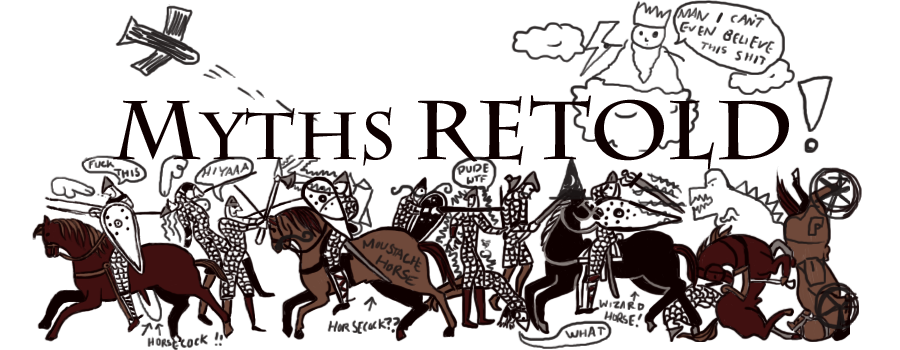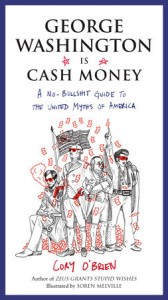Last weekend I was at the comic shop playing Magic, and I got paired with a guy of a sort you would not normally expect to meet in a comic shop playing Magic: a lifelong competitive athlete. This guy had the sort of physique I sometimes covet: thick arms, broad shoulders, the kind of body that makes every t-shirt look like workout gear. He told me he’d been a triathlete before he got hit by a car while training on his bike, and lost all his front teeth (they’d been replaced skillfully. I never would have known). Then he’d been a boxer, until he noticed how all the older trainers were jittery with CTE. He’d done natural bodybuilding for a while, but didn’t like the diets, or the feeling of all those eyes on him. So he’d settled into the comparatively gentle sport of no-gi Brazilian jiu-jitsu.
This guy did tournaments. In jiu-jitsu, tournament matches are decided by submission — that is, they go until one player either falls unconscious from being strangled, or gives up by tapping out. To force their opponents to tap out, a jiu-jitsu player might try strangling them, or they might utilize a “joint lock” or “arm bar,” two techniques which boil down to “put one of your opponents limbs in a position where you can really fuck it up if they don’t tap out.” Most matches end this way. But sometimes, my new friend told me, there are people who won’t tap out.
Maybe they’re too carried away with adrenaline, or a desire to win, so that they ignore the pain. Or maybe it’s a kind of dare: I know you won’t actually break my arm, you weenie. I don’t need to tap out. Either way, the athlete said, the solution was simple: you break their arm.
“People are so used to being honorable, you know… so used to pulling back before they hurt each other, that they might not have the…” he gestured sheepishly, “the grit to actually follow through. And maybe some people take advantage of that.” But he did have the grit. And when it was necessary, he had broken arms in competition.
This experience was so alien to me, because I am definitely one of those people who lacks the grit to break an arm in competition. At least I think I am. I’ve never had to find out. I’ve dabbled in martial arts, but never at a competitive level, and sparring in the gym there’s always a tacit understanding: we’re all quite attached to our faces and limbs and genitals, so let’s try not to fuck those up for each other, yeah?
Beyond that, I’ve never been in a fight at all, beyond a few sucker punches exchanged in middle school. Which is why I am always so fascinated when I get to talk to people who have. People for whom violence isn’t merely theoretical.
Several years ago, after a charity Dungeons and Dragons event, I ended up in a car with a guy of a sort you don’t expect to meet at a charity Dungeons and Dragons event: a former US Marine Scout Sniper. Obviously he had killed people — we moved past that part of the conversation very quickly — but he also had a theory about violence that he was happy to share.
“In the 60s,” he told me, “there was a sexual revolution, where people began to feel comfortable saying ‘I’m a sexual person.’ I think we’re going to come to a point in our society where people can say, ‘I’m a violent person.’ Because I am a violent person. And right now it’s not acceptable for me to say that, but it’s true, it’s part of who I am.”
While not a super reassuring thing to hear from a stranger in a car late at night, he was getting at something real: violence, like sex, is one of the most intense activities human beings engage in, and like sex, there are all sorts of taboos about when to do it and how much you’re allowed to enjoy it. Most people only allow themselves to fulIy engage with these things when they’re heavily altered: drunk, or sad, or angry. But my friend in the car wasn’t a drunk person, or a sad person, or an angry person as far as I could tell. He spoke casually, conversationally, in the same friendly tone the jiu-jitsu player used to describe breaking his opponents’ legs. If this violent man had not joined the Marines, he might never have found a culturally-sanctioned arena in which to explore that part of his identity. But he had joined up, and he had killed people, and that had made him realize something, and he had carried that realization back into civilian life, and into that car, where he calmly told me he was a violent person.
I am 34 years old, and I have never seen a dead body outside of a casket. All of my grandparents have died. My brother has died. A close friend committed suicide. I never saw their bodies. They were all burned before I could see them. It’s hard for me to imagine how my mind would be different if I had not only seen death, but participated in it. Which is why I ask so many questions when I meet people who have.
So much of the luxury we enjoy is the result of heavily abstracted killing: the meat we eat, the gas in our cars, our diamonds, our bananas. What would it be like to have that abstraction removed? To fight in a war, or work in a slaughterhouse? To step through the veil and suddenly see only the killing, and none of the rewards? It must feel like seeing reality for the first time. No wonder we seem like fools to soldiers. No wonder they don’t want to talk to us about “what they’ve done.” A former sniper used to beg for change outside my grad school. One time I asked him who he’d killed.
“Enemies,” he said, and laughed.
My friend at the comic book shop had never killed anyone, at least not as far as I know. He wasn’t even playing jiu-jitsu lately, since he’d torn a ligament in his left shoulder while sparring.
“Do you wanna see something gross?” he asked. “When they did the surgery, the doctor took a photo.”
In the photo, the skin of his shoulder was held wide open, horizontal black marker lines visible on either side of the wound so that they could line them up to sew it back together. Inside was meat. Pink meat, like raw pork.
“It’s crazy, right?” the guy said, smiling with his perfect, artificial teeth. This guy who’d had his body broken and reassembled at least twice — who’d broken other peoples’ bodies just the same. If anybody knew deep down that people are just meat, you’d think it would be him. But maybe “just meat” is reductive, a casual shorthand used by cruel machine intelligences in science fiction. Maybe it’s more accurate to say our bodies are also meat. That beyond everything we call human — our rules, our languages, our false teeth and tight clothes — there is another world of blood and bone and ligaments. Only a few people see that world, and when they do, it changes them, in ways they don’t even always notice.
But I notice, and I try to understand. And it makes it very difficult for me to eat pork.


